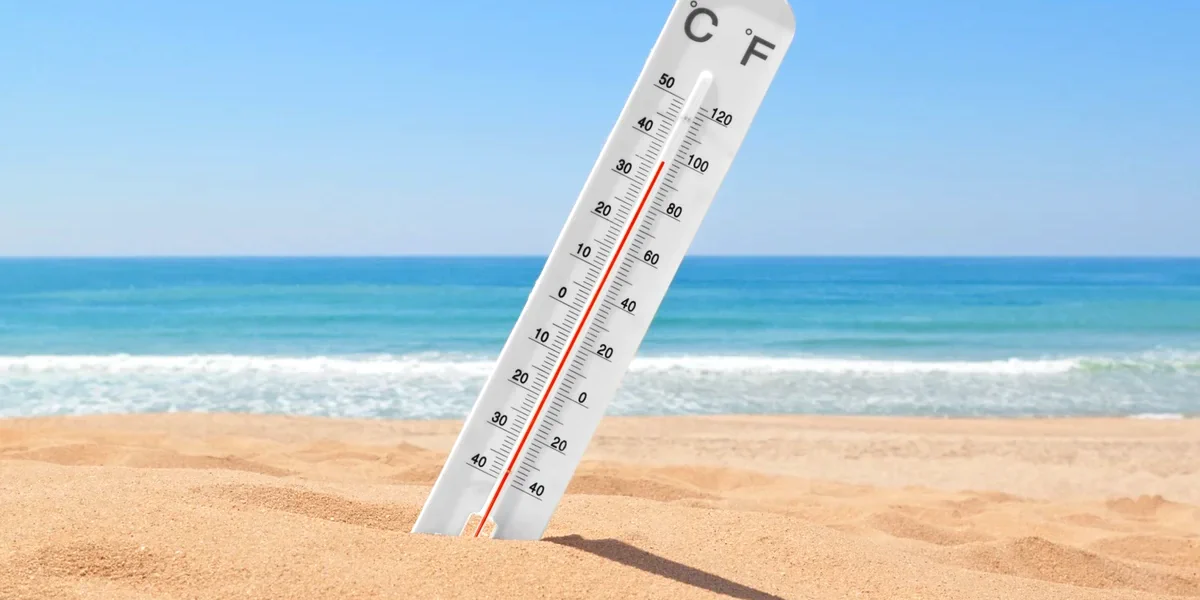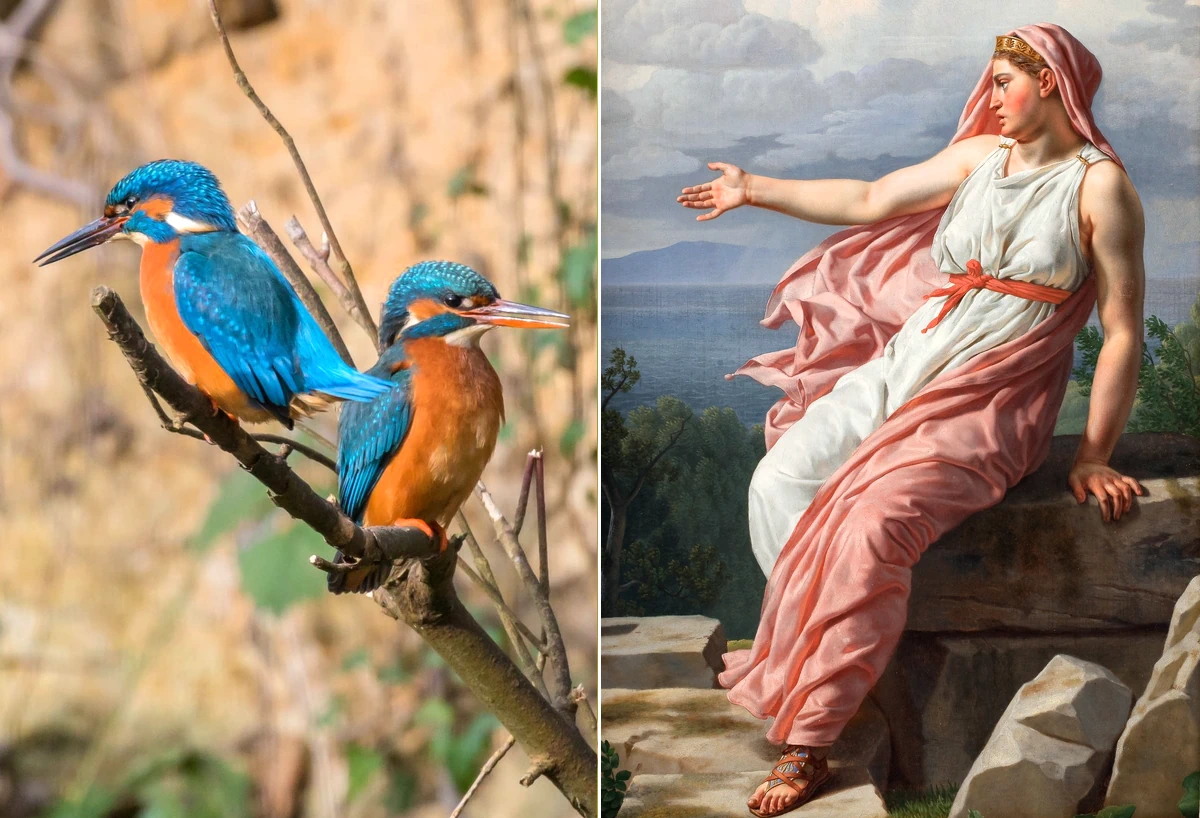Tourist Season in Greece
Every country or even every resort has its own “high” or “low” season, and even no season at all. The “high” season in Greece is from June to September, andthe “low” season is in April, May and October, the rest from November to March are “not a season”. Many travelers prefer to plan their holidays for the summer months, as there is big variety of flights, you can accurately predict the weather, the sea will be warm and so on. But there is its own beauty and charms in the “low season” and in the “off season” . Here in this article, we will discuss all the pros and cons of a trip to Greece at different times of the year.
 Let’s start with the weather in different regions of Greece. The climate is typically Mediterranean: mild and humid winters, warm and dry summers, and generally sunny days prevail during most of the year.
Let’s start with the weather in different regions of Greece. The climate is typically Mediterranean: mild and humid winters, warm and dry summers, and generally sunny days prevail during most of the year.
In more detail, the various regions of Greece have wide variety of types of Mediterranean climate. This is due to the topographic configuration of Greece which has big height differences (large mountain ranges are located along the central part of the country and in other mountainous areas), on the islands as well. Thus, there’s the dry climate of Attica and Eastern Greece in general, and the humid climate of Northern and Western Greece. There are such climatic differences even in places located at a short distance from each other, which is typical only for a few countries of the world.
From a climatological point of view, the year in Greece can be divided mainly into two seasons: A moderately cold and rainy winter season lasting from the end of October till the end of March, and a warm and rainy season lasting from April till October.
During the first period, the coldest months are January and February, with minimum temperatures from 5-10 ºC in coastal areas, from 0-5 ºC in continental areas, lower and below zero in northern and mountainous areas. Moreover, on warm days, the temperature in these regions can reach 12-18 degrees.
Rains in Greece even in the winter season are not long, and the sky doesn’t remain cloudy for several days in a row, as it happens in other regions of the world. During the winter bad weather often changes in January and in the first two weeks of February by sunny days, known since ancient times as “Days of Alkionides”*.
The winter season in the Aegean and Ionian Islands is milder than in northern and eastern Greece.
In the warm season, the weather is stable, the sky is almost always clear, the sun is bright, there is no rain, except for rare short-term thunderstorms. The hottest period in Greece is the last decade of July and the first of August, when the maximum temperature can reach +35 °C. In the warm season high temperature doesn’t feel that hot because of the cool sea breeze in the coastal areas and northern winds in the Aegean Sea.
The hottest period in Greece is the last decade of July and the first of August, when the maximum temperature can reach +35 °C. In the warm season high temperature doesn’t feel that hot because of the cool sea breeze in the coastal areas and northern winds in the Aegean Sea.
Spring has a short duration because winter comes late and summer starts early. Autumn is long and warm and often lingers in southern Greece until the middle of December.
Now that we’ve talked about the climate in Greece and how it differs depending on the region, you can understand when it’s best for you to visit Greece, what to do during your vacation and how to plan a trip. There is another important thing about your trip to Greece at different times of the year, most of entertainments, such as group excursions, or visits to attractions are mainly scheduled for the summer months from April to October, and historical and archaeological sites are open longer. During winter months you can visit the same places, only pay attention on shorter opening hours, as well as a nice bonus is free admission fee every first Sunday of the month to some attractions. The cost of entrance tickets itself often changes; in winter it will be lower than in summer.
There is another important thing about your trip to Greece at different times of the year, most of entertainments, such as group excursions, or visits to attractions are mainly scheduled for the summer months from April to October, and historical and archaeological sites are open longer. During winter months you can visit the same places, only pay attention on shorter opening hours, as well as a nice bonus is free admission fee every first Sunday of the month to some attractions. The cost of entrance tickets itself often changes; in winter it will be lower than in summer.
Everyone knows what to do in Greece in summer, its visiting beaches, walking around cities and attractions, participating in interesting excursions and just enjoying the Mediterranean sun, cuisine and local traditions.
But what can you do in Greece in winter? As you have already understood, in many regions of Greece, the weather in winter is identical to the summer weather of half of European countries. For this reason, visiting Greece in the non-tourist season you will have a lot of advantages, such as: lower prices for accommodation and sightseeing, most touristic places will be almost empty, and nature in Greece blooms in winter. In some southern regions of Greece, you can even sunbathe in winter. If you love winter sports there are many ski resorts even near Athens. Well, January is the month of winter sales, this should not be forgotten either.
* Days of the Alcyonids, probably most of you never heard about it. The days of the Alcyonids are named after the bird Alcyon, which lays eggs these days, according to tradition, this bird symbolizes peace and protection, and during the period when she lays eggs it is always windless and warm. In Greek mythology, Alcyone (also spelled Halcyone) was the daughter of the God Aeolus, controller of the winds. Alcyone married Ceyx and the coupleloved each other deeply, but their happiness ended shortly after the death of Ceyx’s brother: Ceyx, convinced that the gods had turned against him, decided to leave Alcyone and sail to Ionia, where he could consult the oracle of Apollo, god of prophecy, the sun, healing, poetry, and music.
In Greek mythology, Alcyone (also spelled Halcyone) was the daughter of the God Aeolus, controller of the winds. Alcyone married Ceyx and the coupleloved each other deeply, but their happiness ended shortly after the death of Ceyx’s brother: Ceyx, convinced that the gods had turned against him, decided to leave Alcyone and sail to Ionia, where he could consult the oracle of Apollo, god of prophecy, the sun, healing, poetry, and music.
Alcyone was opposed to Ceyx’s journey, fearing that something terrible would happen to him. She begged him not to go, but Ceyx was determined. He set sail, but didn’t get far before a terrible storm destroyed the ship—everyone on board drowned in the Aegean Sea. No news of the wreck came back to Alcyone, but when Ceyx did not return, she asked the gods for a dream to tell her what had happened.
The dead Ceyx visited Alcyone in a dream, and she knew that he was drowned. Grief stricken, she wandered down to the shore where she had last seen him. At the same time, the waves carried Ceyx’s body to her. She threw herself into the water but the gods, seeing her terrible grief, lifted her up and turned the couple into birds—Halcyon birds, who mate each year at the start of winter.
The female Halcyon bird is said to build a nest of fish bones that floats on the sea, and she tends the nest for the seven days that have the winter solstice at the center. During this time, Aeolus keepsthe winds away and the waters are calm, so that his grandchildren are kept safe.
 Let’s start with the weather in different regions of Greece. The climate is typically Mediterranean: mild and humid winters, warm and dry summers, and generally sunny days prevail during most of the year.
Let’s start with the weather in different regions of Greece. The climate is typically Mediterranean: mild and humid winters, warm and dry summers, and generally sunny days prevail during most of the year.
In more detail, the various regions of Greece have wide variety of types of Mediterranean climate. This is due to the topographic configuration of Greece which has big height differences (large mountain ranges are located along the central part of the country and in other mountainous areas), on the islands as well. Thus, there’s the dry climate of Attica and Eastern Greece in general, and the humid climate of Northern and Western Greece. There are such climatic differences even in places located at a short distance from each other, which is typical only for a few countries of the world.
From a climatological point of view, the year in Greece can be divided mainly into two seasons: A moderately cold and rainy winter season lasting from the end of October till the end of March, and a warm and rainy season lasting from April till October.
During the first period, the coldest months are January and February, with minimum temperatures from 5-10 ºC in coastal areas, from 0-5 ºC in continental areas, lower and below zero in northern and mountainous areas. Moreover, on warm days, the temperature in these regions can reach 12-18 degrees.
Rains in Greece even in the winter season are not long, and the sky doesn’t remain cloudy for several days in a row, as it happens in other regions of the world. During the winter bad weather often changes in January and in the first two weeks of February by sunny days, known since ancient times as “Days of Alkionides”*.
The winter season in the Aegean and Ionian Islands is milder than in northern and eastern Greece.
In the warm season, the weather is stable, the sky is almost always clear, the sun is bright, there is no rain, except for rare short-term thunderstorms.
 The hottest period in Greece is the last decade of July and the first of August, when the maximum temperature can reach +35 °C. In the warm season high temperature doesn’t feel that hot because of the cool sea breeze in the coastal areas and northern winds in the Aegean Sea.
The hottest period in Greece is the last decade of July and the first of August, when the maximum temperature can reach +35 °C. In the warm season high temperature doesn’t feel that hot because of the cool sea breeze in the coastal areas and northern winds in the Aegean Sea.
Spring has a short duration because winter comes late and summer starts early. Autumn is long and warm and often lingers in southern Greece until the middle of December.
Now that we’ve talked about the climate in Greece and how it differs depending on the region, you can understand when it’s best for you to visit Greece, what to do during your vacation and how to plan a trip.
 There is another important thing about your trip to Greece at different times of the year, most of entertainments, such as group excursions, or visits to attractions are mainly scheduled for the summer months from April to October, and historical and archaeological sites are open longer. During winter months you can visit the same places, only pay attention on shorter opening hours, as well as a nice bonus is free admission fee every first Sunday of the month to some attractions. The cost of entrance tickets itself often changes; in winter it will be lower than in summer.
There is another important thing about your trip to Greece at different times of the year, most of entertainments, such as group excursions, or visits to attractions are mainly scheduled for the summer months from April to October, and historical and archaeological sites are open longer. During winter months you can visit the same places, only pay attention on shorter opening hours, as well as a nice bonus is free admission fee every first Sunday of the month to some attractions. The cost of entrance tickets itself often changes; in winter it will be lower than in summer.
Everyone knows what to do in Greece in summer, its visiting beaches, walking around cities and attractions, participating in interesting excursions and just enjoying the Mediterranean sun, cuisine and local traditions.
But what can you do in Greece in winter? As you have already understood, in many regions of Greece, the weather in winter is identical to the summer weather of half of European countries. For this reason, visiting Greece in the non-tourist season you will have a lot of advantages, such as: lower prices for accommodation and sightseeing, most touristic places will be almost empty, and nature in Greece blooms in winter. In some southern regions of Greece, you can even sunbathe in winter. If you love winter sports there are many ski resorts even near Athens. Well, January is the month of winter sales, this should not be forgotten either.
* Days of the Alcyonids, probably most of you never heard about it. The days of the Alcyonids are named after the bird Alcyon, which lays eggs these days, according to tradition, this bird symbolizes peace and protection, and during the period when she lays eggs it is always windless and warm.
 In Greek mythology, Alcyone (also spelled Halcyone) was the daughter of the God Aeolus, controller of the winds. Alcyone married Ceyx and the coupleloved each other deeply, but their happiness ended shortly after the death of Ceyx’s brother: Ceyx, convinced that the gods had turned against him, decided to leave Alcyone and sail to Ionia, where he could consult the oracle of Apollo, god of prophecy, the sun, healing, poetry, and music.
In Greek mythology, Alcyone (also spelled Halcyone) was the daughter of the God Aeolus, controller of the winds. Alcyone married Ceyx and the coupleloved each other deeply, but their happiness ended shortly after the death of Ceyx’s brother: Ceyx, convinced that the gods had turned against him, decided to leave Alcyone and sail to Ionia, where he could consult the oracle of Apollo, god of prophecy, the sun, healing, poetry, and music.
Alcyone was opposed to Ceyx’s journey, fearing that something terrible would happen to him. She begged him not to go, but Ceyx was determined. He set sail, but didn’t get far before a terrible storm destroyed the ship—everyone on board drowned in the Aegean Sea. No news of the wreck came back to Alcyone, but when Ceyx did not return, she asked the gods for a dream to tell her what had happened.
The dead Ceyx visited Alcyone in a dream, and she knew that he was drowned. Grief stricken, she wandered down to the shore where she had last seen him. At the same time, the waves carried Ceyx’s body to her. She threw herself into the water but the gods, seeing her terrible grief, lifted her up and turned the couple into birds—Halcyon birds, who mate each year at the start of winter.
The female Halcyon bird is said to build a nest of fish bones that floats on the sea, and she tends the nest for the seven days that have the winter solstice at the center. During this time, Aeolus keepsthe winds away and the waters are calm, so that his grandchildren are kept safe.